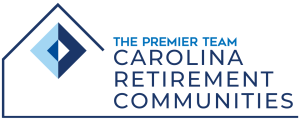
Retirees Go Back to School—Online
Degree seekers and lifelong learners alike search out accessible options.
Retirement is a time of great possibility. Many retirees report plans to travel, spend time with family, and pick up new hobbies. Now, more older adults are deciding to use at least some of their newfound free time back in a classroom—but not just any classroom.
In the last few years, the popularity of online learning has grown significantly. A recent Pew study showed that 73% of adults consider themselves to be lifelong learners. And because 59% of seniors report regularly using the Internet, an increasing number of those lifelong learners are turning to the Internet to facilitate their education.
In addition to greater flexibility for busy schedules or reduced mobility, online learners have access to a wider range of courses and programs to meet their particular interests or needs. Whether you’re working toward a degree or simply pursing a new interest, moving your studies online could be a smart move.
Seeking a degree online
If you’re ready to earn a degree or certificate, there are many online options. Many colleges and universities, as well as community colleges, have online courses to meet degree criteria.
Online learning offers a unique opportunity for those looking to add another diploma to their wall, in that they can choose a program to match their interests or needs, regardless of their physical proximity to the school. A retiree in Georgia, for example, can log on and study with students and professors at Northwestern University in Illinois. Plus, these online learners have access to many of the same academic resources as on-campus students.
And while online students have deadlines just like everyone else, they enjoy a greater flexibility to complete work when it is convenient for them.
There are a few drawbacks to a completely online education when seeking a degree. First, many programs, particularly “hard” sciences, will require some form of in-person lab time. Second, these programs will require students to pay tuition. While there is certainly financial assistance available for adult students, the price tag of some colleges or universities may be prohibitive.
Finally, students will need to be sure their online program is properly accredited, so their hard work results in a valid certificate or degree. But if your preferred program at your dream university is available, affordable, and accessible online, all you need is a computer, a desk, and the drive to learn.
Continuing education online
For those retirees simply wanting to broaden their horizons, there are a seemingly infinite number of online resources for continuing education. Many are free, and all are extremely accessible.
Khan Academy (khanacademy.org) is a nonprofit educational organization created in 2006 after founder and MIT graduate Salman Khan began long-distance tutoring his cousin in math using various programs online. Khan received requests to share the video lessons with other relatives and friends, so he uploaded them to YouTube.
The video lessons eventually became so popular, Khan quit his day job. Now, Khan Academy offers courses in all types of math, engineering, and science programs, as well as history, computing, economics, finance, and more. Many of the courses have been translated into different languages.
All of Khan Academy courses are offered free of charge, making this an incredibly attractive resource to many audiences. Seniors helping their grandkids with homework can brush up on algebra and geometry a few times a week, and retired engineers can refresh and update their knowledge. However, those searching for liberal arts courses will have to look elsewhere.
Another platform with a broader range of topics is Coursera (coursera.org), which partners with higher education institutions around the world to bring its users courses in the humanities, as well as math, science, and technology topics.
In the free version of this service, Coursera provides students with the infrastructure for self-guided learning, including a syllabus, video lectures, quizzes, and peer-reviewed assignments. Students set their own pace and have the ability to connect with other learners to discuss their studies and review their work.
But if students are willing to pay course fees, which range from just a few dollars to a few hundred, they get access to more extensive resources like professors and graded assignments. Paying students also receive a course certificate, which confirms that they completed the course.
Open laptop, open mind
In its report, the Pew Research Center states that lifelong learners “feel more capable and well rounded” and that online classes “helped them make new friends” and “opened up new perspectives.” More and more, older adults are enjoying these benefits through a virtual classroom. And while online learning may not be right for everyone, it provides too many exciting opportunities to not log on and give it a shot.
Reprinted with permission from the Tribune (ericksontribune.com). If you would like information about Windsor Run, the Erickson Living community in Matthews, NC, please contact a representative at 1-800-357-4492.





